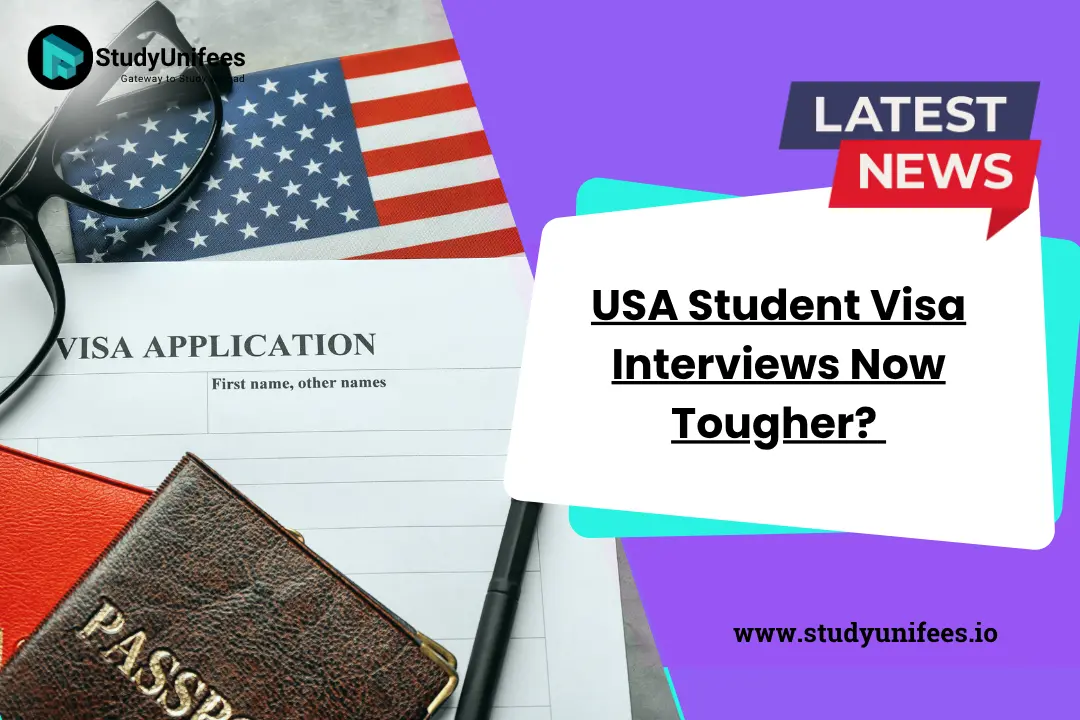USA Student Visa Interviews Now Tougher?

USA Student Visa Interviews Now Tougher?
One Indian student reports several technical questions on Data Science while another faces an intense 5-minute grilling. Is this the new normal?
Recent experiences shared by Indian students applying for F1 visas at U.S. consulates in Hyderabad and Mumbai suggest that the visa interview process may be becoming more rigorous, particularly for those pursuing STEM programs. Two students, one rejected and one approved, detailed their encounters on Reddit, highlighting technical questioning, intense scrutiny, and unexpected challenges. These accounts raise questions about whether tougher interviews are becoming the norm amid the Trump administration’s crackdown on international students and a recent suspension of new visa appointments.
A Technical grilling in Hyderabad
On May 30, 2025, an Indian student applying for a Master’s in Data Science at Indiana University Bloomington faced an unexpectedly technical F1 visa interview at the U.S. Consulate in Hyderabad. The interview, conducted by a white male visa officer in his 30s, began with standard questions about the applicant’s educational background and university applications but quickly shifted to a rigorous technical round. The officer asked about data structures and machine learning, including the difference between arrays and linked lists and the definition of linear regression. The applicant, who completed their undergraduate degree in April 2025, answered confidently, emphasizing their interest in Indiana University’s industry-oriented Applied Data Science track. Despite clear responses, the officer abruptly rejected the visa under Section 214(b), stating, “Unfortunately, your visa has been rejected. You’re welcome to reapply.”
The rejection stunned the applicant, who shared their experience on Reddit’s immigration and visa communities, seeking guidance. Commenters speculated that the denial might stem from perceived weaknesses in technical answers, insufficient ties to India, or failure to demonstrate non-immigrant intent, a common reason for Section 214(b) rejections. One user noted, “Sometimes they’re testing how serious and prepared you are. Maybe they expected stronger technical answers.” Another suggested the visa officer may have doubted the applicant’s academic intent. The student is now preparing for a second attempt, with many online observers warning that technical questions could become standard for STEM applicants.
An Intense but Successful Interview in Mumbai
In contrast, another Indian student secured an F1 visa for a Master’s in Software Engineering at San Jose State University (SJSU) after a tense, 4–5-minute interview at the U.S. Consulate in Mumbai on the same day. The applicant, admitted to multiple universities including ASU, UCI, and SUNY Buffalo, faced a barrage of detailed questions from an Indian woman officer described as having a no-nonsense demeanor. The interview took an unexpected turn when the officer misread the I-20 form, confusing “Software Engineering” with “Computer Engineering.” The student swiftly clarified the technicality, explaining the course specialization.
The officer’s questioning grew intense, focusing on academic and professional experiences. She discouraged oversharing, urging precise answers about internships, coursework, and post-bachelor’s work. A notable moment came when she asked, “Do you know the responsibilities of a Software Architect?” The applicant responded confidently, offering to explain further, which appeared to impress the officer. Financial dependency concerns arose when the officer questioned the student’s reliance on a student loan. The applicant provided detailed clarifications about family income, assets, and a repayment plan, alleviating doubts. The officer also mistakenly claimed the student had a sibling on an H-1B visa in the U.S., which the applicant calmly corrected, noting their younger sibling was still in school.
The officer pressed further, questioning the choice of SJSU over SUNY Buffalo. The student defended their decision, citing SJSU’s focused curriculum and career alignment, ultimately convincing the officer. After a final review, the officer approved the visa, stating, “Your visa is approved, you will receive it within a week.”
Are Tougher Interviews the New Norm?
These contrasting experiences highlight the increasing complexity of F1 visa interviews, particularly for STEM fields like Data Science and Software Engineering. The Hyderabad applicant’s technical questioning suggests consulates may be testing academic preparedness, while the Mumbai applicant’s intense scrutiny over financials and university choice indicates a broader evaluation of intent and credibility. Both cases align with reports of growing scrutiny on F1 visa applicants, especially in high-demand fields.
The Trump administration’s recent policies may be driving this trend. On May 27, 2025, the U.S. State Department paused new F1, M, and J visa interviews to implement expanded social media vetting, a move aimed at enhancing national security by screening for extremist or anti-American sentiments. This suspension, reported by Politico and confirmed by multiple sources, has created uncertainty for over 1 million international students, including 331,602 Indian students who comprised 29.4% of the U.S.’s international student population in 2023–24. Additionally, a 30% drop in F-category visas issued in February 2025 compared to February 2024 reflects a tightening of immigration rules under President Trump.
Speculation abounds on Reddit and X, with users suggesting that technical questions and intense grilling could become standard as consulates adapt to stricter vetting protocols. The Hyderabad applicant’s experience, corroborated by reports from Siasat and EdexLive, indicates that visa officers may now probe subject-specific knowledge to verify academic intent, particularly for STEM programs.
